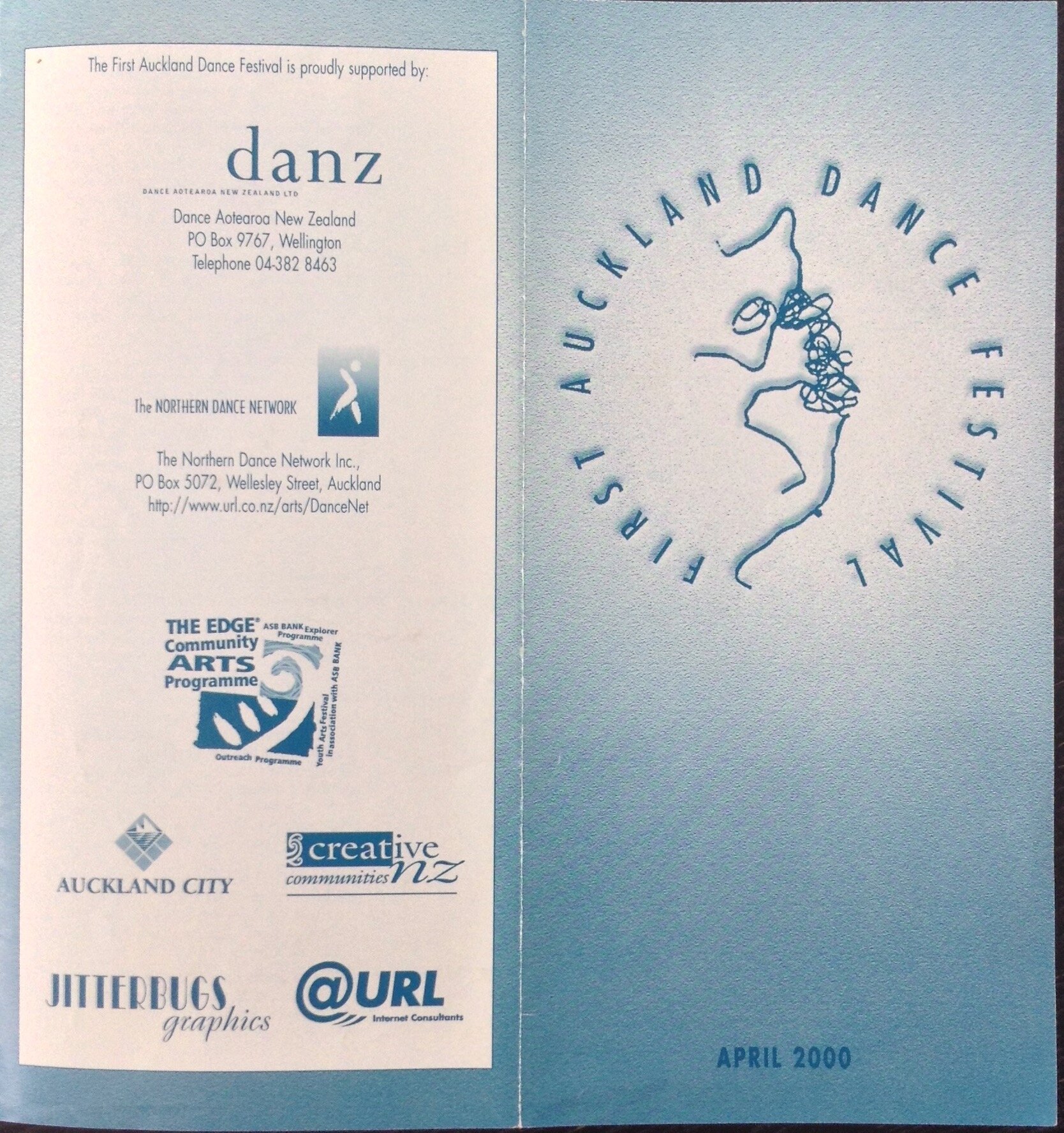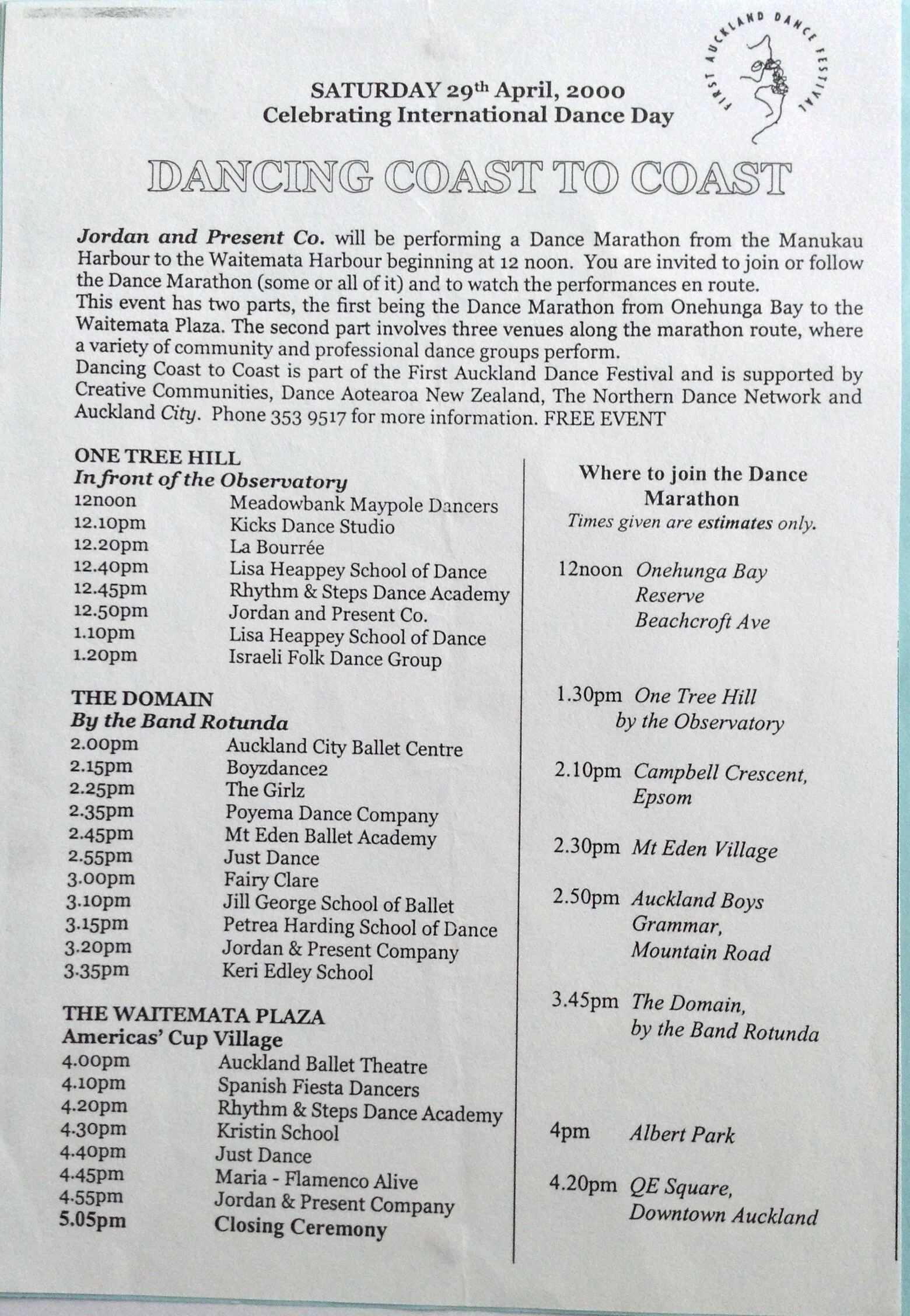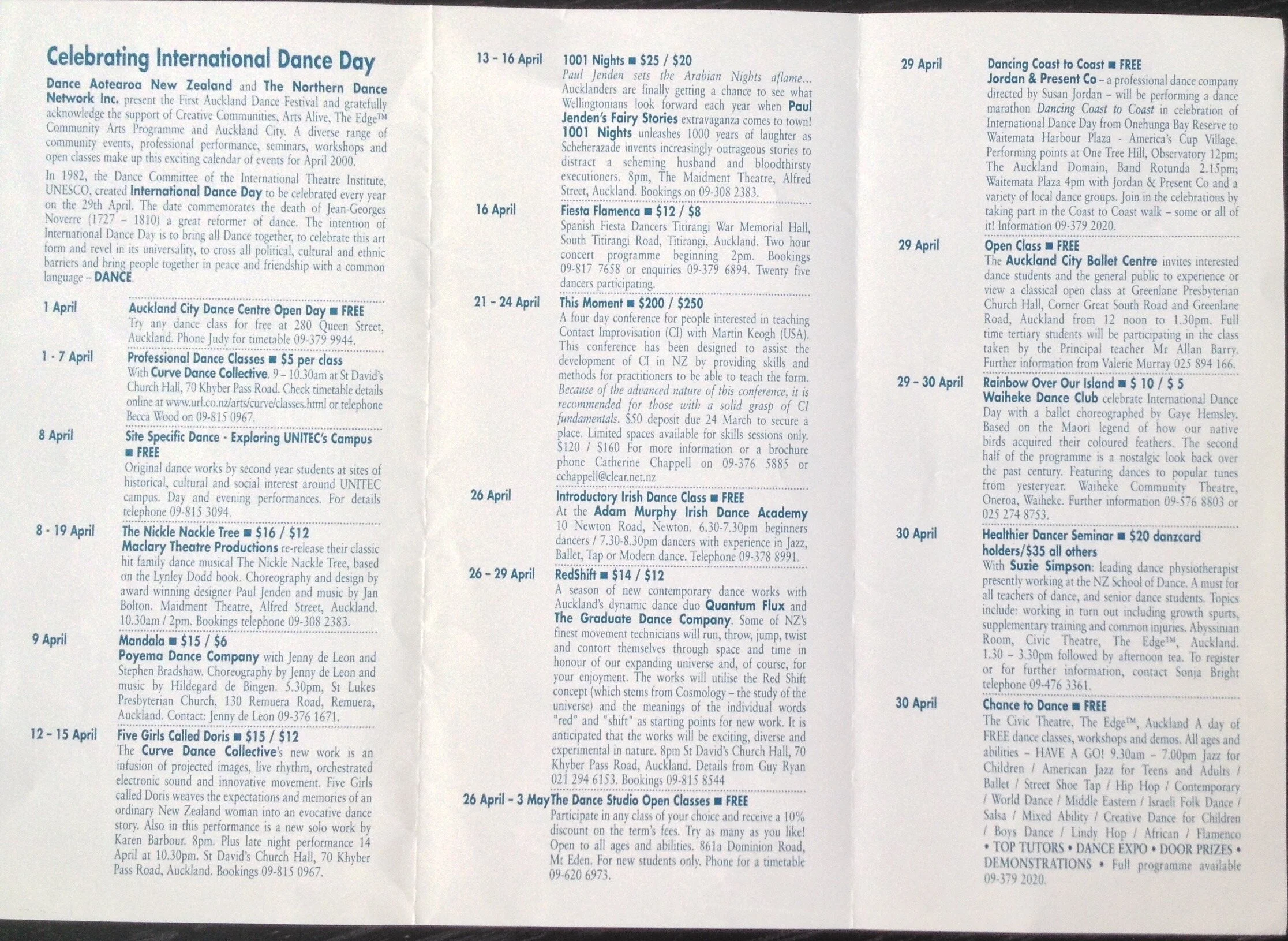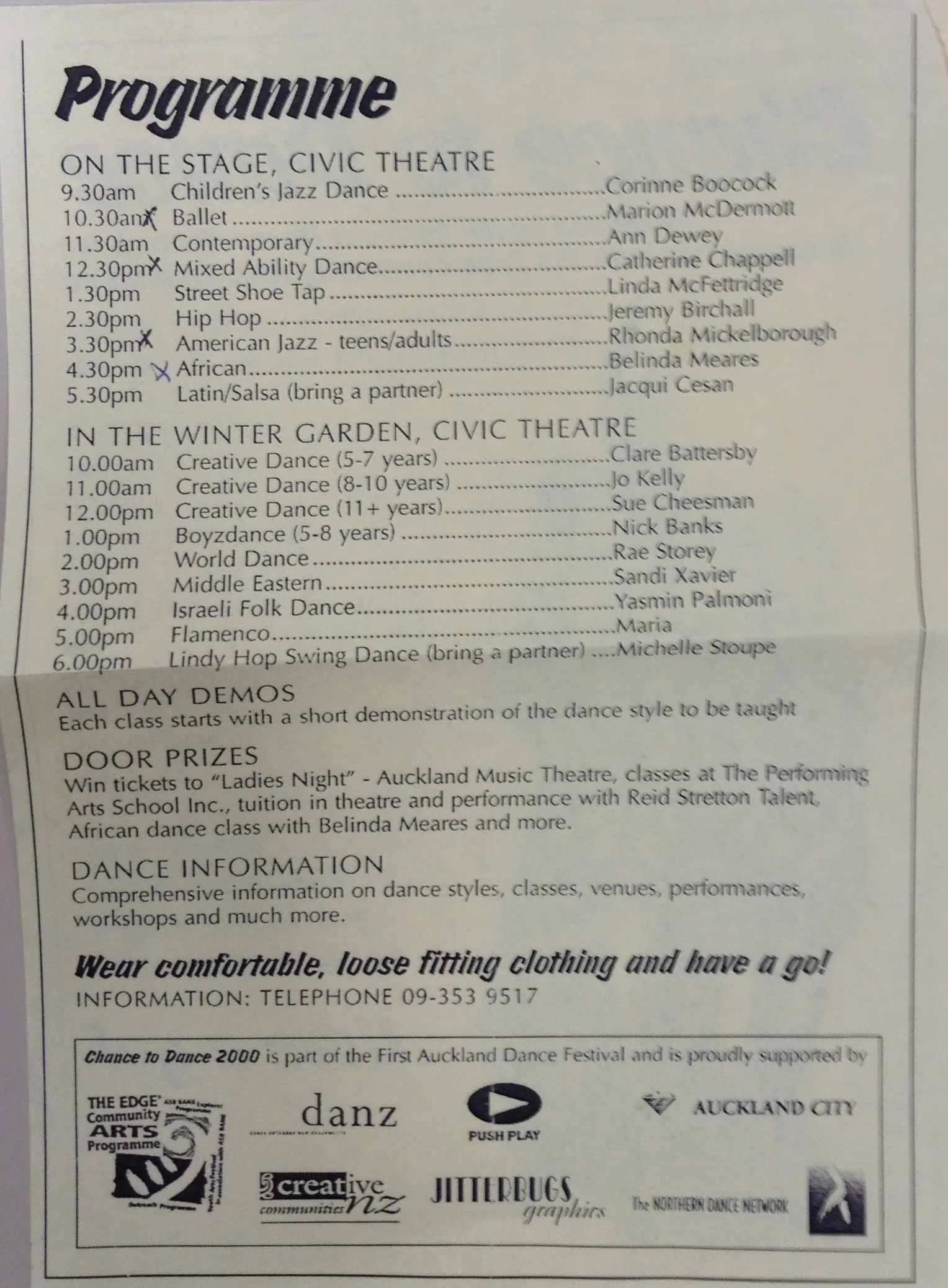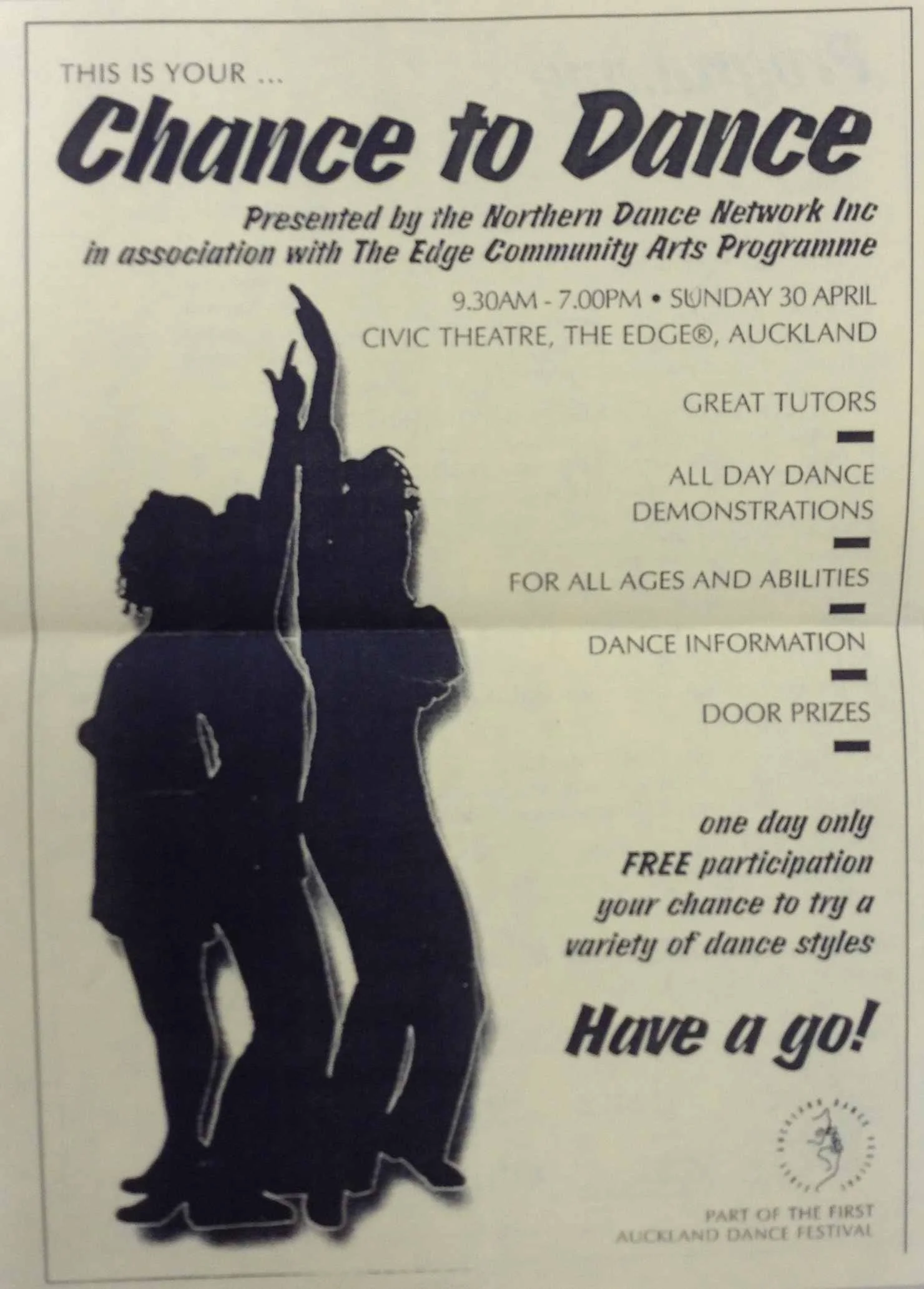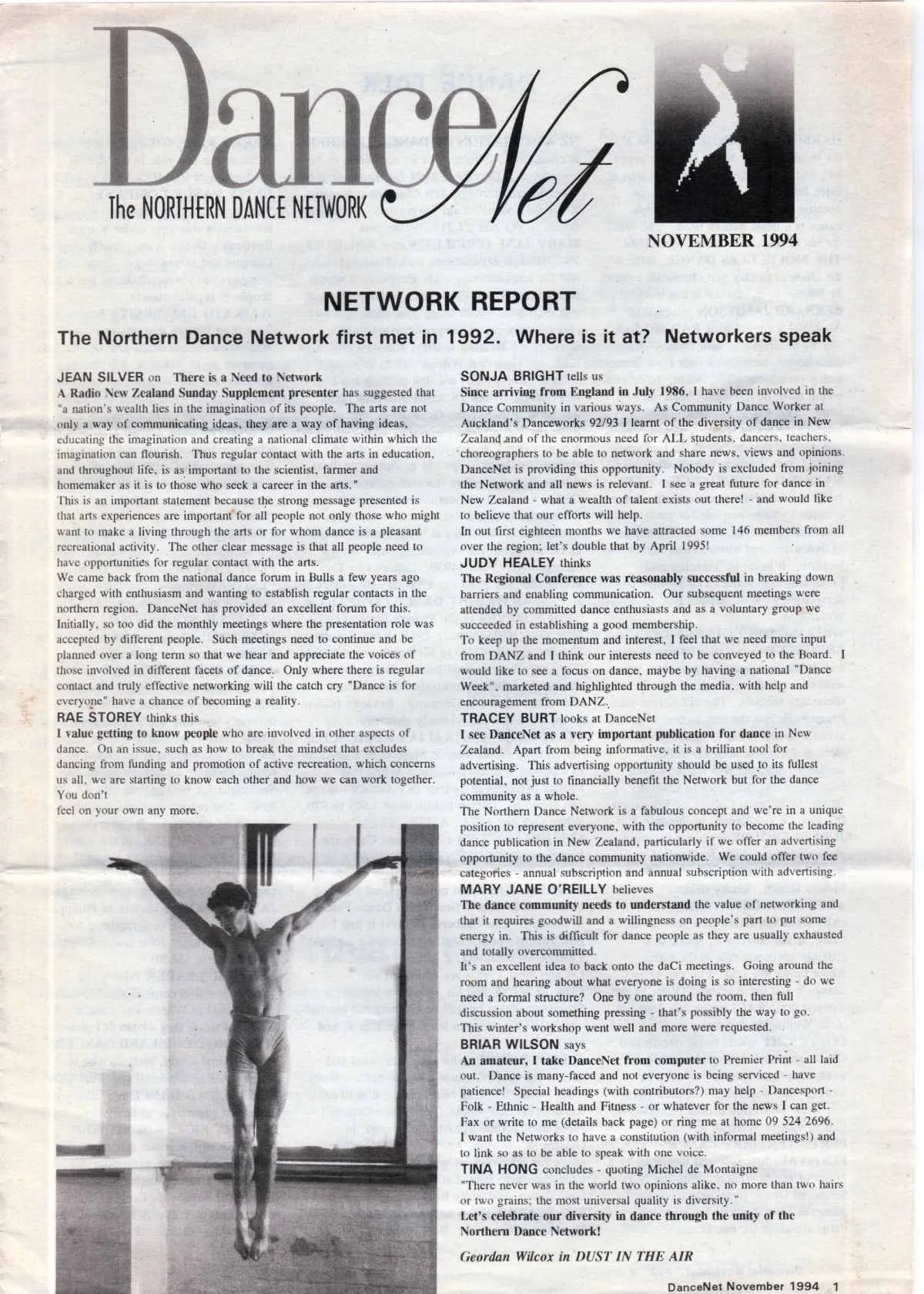
2000
Our 2000 collection will continue to grow as more is added.
Following on from the 1992 national dance hui at Flock House (a former agricultural training school near Bulls), it was decided to dissolve Northern Dance Association, resulting in the birth of the Northern Dance Network (NDN), based in Auckland. Established as a not-for-profit incorporated society, the NDN devoted its energy into continuing the work of the Northern Dance Association while also expanding its role in the dance community. One of its first initiatives was the publication of a dance newsletter, DanceNet, edited by long-term dance advocate Briar Wilson. This A-4 printed newsletter included news of upcoming dance events, member profiles and notices for classes and workshops. Two annual events produced by the NDN in conjunction with the Auckland City Council, Chance to Dance, a day-long celebration offering free dance classes in the Auckland Town Hall and Shake a Leg, a youth-centered dance concert, proved popular for several years and have continued in various forms to the present.
The first Auckland Dance Festival, under the auspices of the ADFT and directed by Sonja Bright, was planned to coincide with the International Dance Day, occurring annually on April 29. With that in mind, the festival ran from April 1st- May 5th, 2000. The Auckland Dance Festival 2000 programme included the popular events Chance to Dance free classes and Shake a Leg, along with a new initiative called Dancing Coast to Coast produced by Jordan and Present Co. directed by Susan Jordan. This community ‘dance marathon’ from the Manukau Harbour to the Waitematā encouraged participation in various ways, from carrying banners advertising dance studios, joining in parade-style or performing a work at a stop enroute.
The Auckland Dance Company, directed by Mary Jane O’Reilly, presented their work-in- progress Gallipoli as a school school, while a company made up of recent graduates of the Contemporary Dance course at Unitec, Curve Dance Collective presented Five Girls Called Doris at the St David’s church hall on Khyber Pass Road. Members of Curve included Becca Wood, Kelly Nash, Anya Packham, Anna McRae, Malia Johnstone, Megan Smith, Karen Barbour, and musician Charlotte 90. Five Girls Called Doris was described as an ‘infusion of projected images, live rhythm, orchestrated electronic sound, and innovative movement’.
Wellington’s Maclary Theatre Productions, led by choreographer Paul Jenden, presented their ‘family dance musical’, The Nickle Nackle Tree at the Maidment Theatre and Jenden’s work was seen in 1001 Nights, also at the Maidement. A four-day conference on Contact Improvisation led by visiting US-based dancer Martin Keogh was produced by Catherine Chappel and presented under the auspices of the Auckland Dance Festival. Jenny De Leon and Stephen Bradshaw performed together in Mandela by the Poyema Dance Company, at St Lukes Presbyterian Church. It is clear that this inaugural festival reflected both the needs of the burgeoning professional dance community in Auckland and also the ongoing love for and participation in dance by a variety of dance practitioners in the region.

